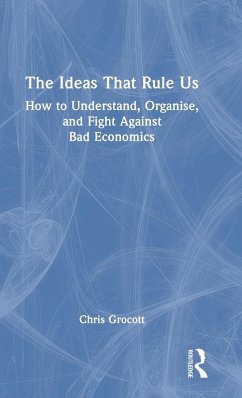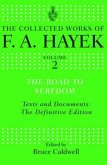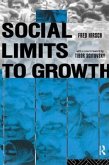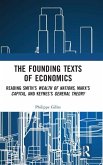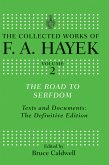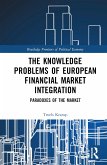It may seem surprising that the economic choices we make in society are often determined by ideas rather than scientific evidence or financial resources. The consequences of such choices are often stark - such as the austerity policies which eroded our ability to withstand crises like the Covid 19 pandemic. This book explores the ideas that rule how our economy works, how government operates and how workers organise.
A small number of historical economic ideas remain stubbornly prevalent and powerful today. However, they are largely based on questionable assumptions about human behaviour and unproven theoretical ideas about economics. They were founded within the realms of philosophy and politics rather than hard science. This book illustrates how politicians have selectively borrowed convenient economic concepts in order to promote and defend policies which entrench and escalate inequalities and other structural problems.
This accessible book invites readers toquestion the ideas that rule us and explore the challenges facing society. It invites progressive thought about how we need to urgently organise action for the future.
A small number of historical economic ideas remain stubbornly prevalent and powerful today. However, they are largely based on questionable assumptions about human behaviour and unproven theoretical ideas about economics. They were founded within the realms of philosophy and politics rather than hard science. This book illustrates how politicians have selectively borrowed convenient economic concepts in order to promote and defend policies which entrench and escalate inequalities and other structural problems.
This accessible book invites readers toquestion the ideas that rule us and explore the challenges facing society. It invites progressive thought about how we need to urgently organise action for the future.
"You might ask yourself, how did we get here: broken public services, polluted rivers and the return of rickets? Chris Grocott provides a crucial part of the answer, deftly recounting the history of the ideas that have come to drive policy, shape behaviour and dominate thinking." David Harvie, co-author of Shaping for Mediocrity: The Cancellation of Critical Thinking at Our Universities, and co-editor of Commoning with George Caffentzis and Silvia Federici
"The state of affairs that economists so often justify is producing gigantic inequalities and a climate crisis. In this beautiful little book, Chris Grocott punctures the old stories and encourages the birth of new ones. This is essential reading which will help us to produce a low carbon, high inclusion, high democracy economy." Martin Parker, Professor of Organization Studies, University of Bristol Business School, UK
"Economic ideas have a reputation for being devilishly complicated. But The Ideas That Rule Us makes clear that economics has always been most powerful when it is presented as deceptively simple: something that can bring order to the messiness of people's lives. Grocott expertly leads the reader through the basic economic assumptions that shape how we think about the world via a study of key economic theorists from Adam Smith and Karl Marx to John Maynard Keynes and Friedrich Hayek. But as he explains, the 'common sense' economic ideas we live with are now centuries old, and in need of re-evaluation. An important but accessible read that tackles the big questions that continue to perplex society - namely what makes an economy 'good' and who is it really 'good' for?" Amy Edwards, Senior Lecturer in Modern British History, University of Bristol and author of Are We Rich Yet? The Rise of Mass Investment Culture in Contemporary Britain
"The state of affairs that economists so often justify is producing gigantic inequalities and a climate crisis. In this beautiful little book, Chris Grocott punctures the old stories and encourages the birth of new ones. This is essential reading which will help us to produce a low carbon, high inclusion, high democracy economy." Martin Parker, Professor of Organization Studies, University of Bristol Business School, UK
"Economic ideas have a reputation for being devilishly complicated. But The Ideas That Rule Us makes clear that economics has always been most powerful when it is presented as deceptively simple: something that can bring order to the messiness of people's lives. Grocott expertly leads the reader through the basic economic assumptions that shape how we think about the world via a study of key economic theorists from Adam Smith and Karl Marx to John Maynard Keynes and Friedrich Hayek. But as he explains, the 'common sense' economic ideas we live with are now centuries old, and in need of re-evaluation. An important but accessible read that tackles the big questions that continue to perplex society - namely what makes an economy 'good' and who is it really 'good' for?" Amy Edwards, Senior Lecturer in Modern British History, University of Bristol and author of Are We Rich Yet? The Rise of Mass Investment Culture in Contemporary Britain

